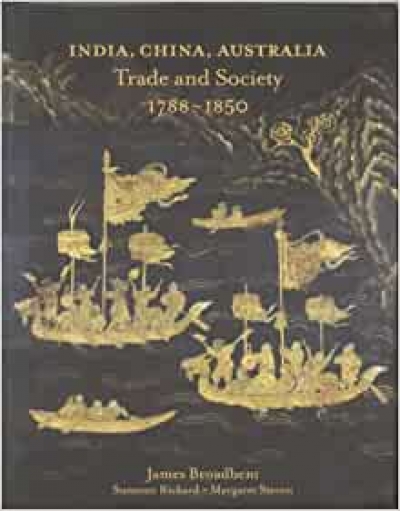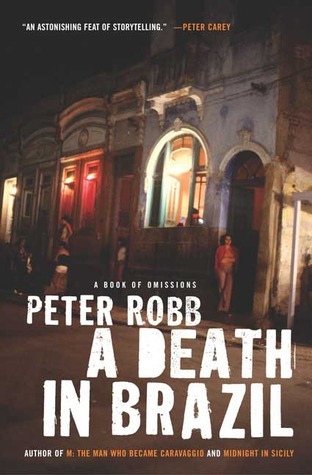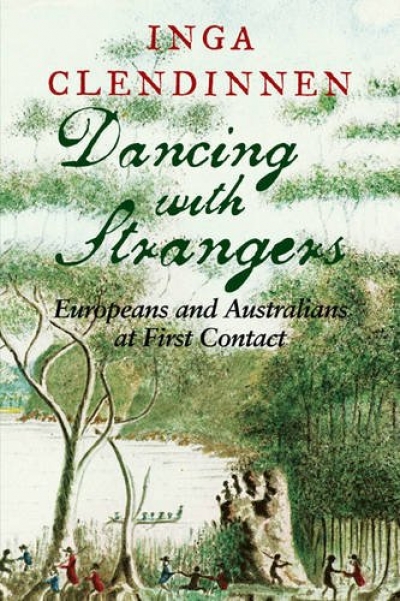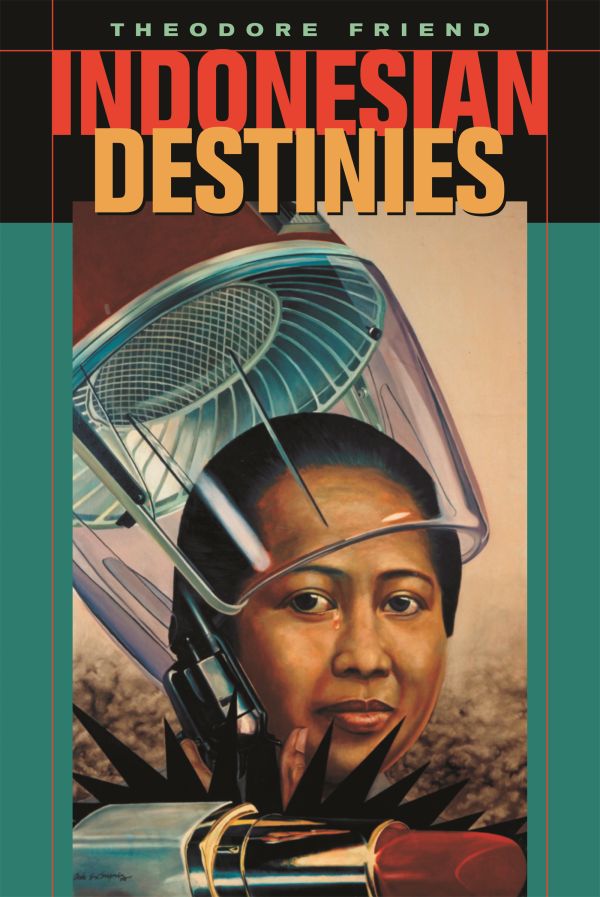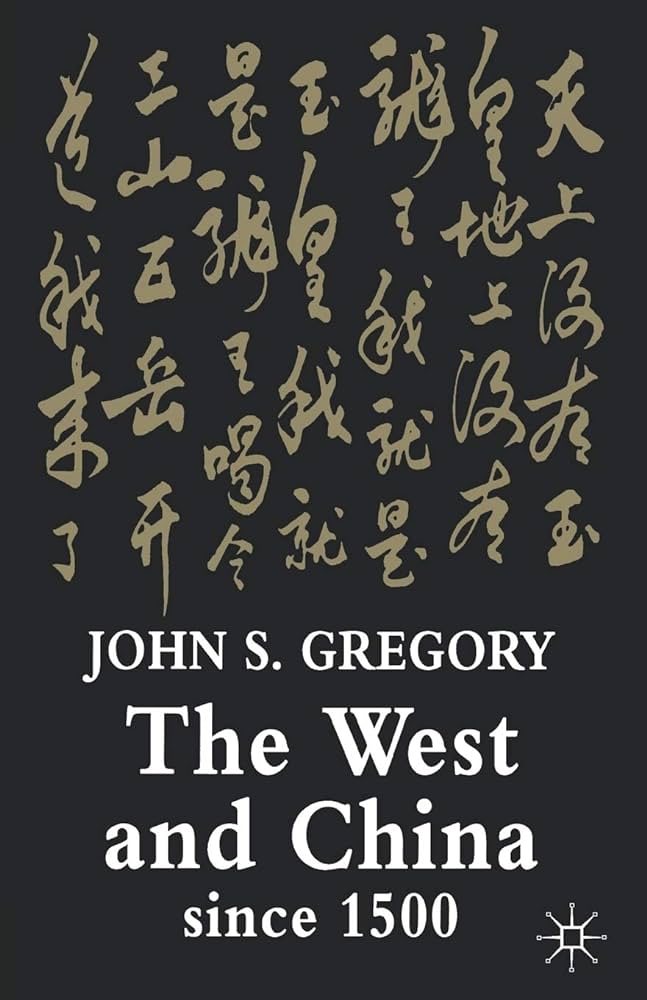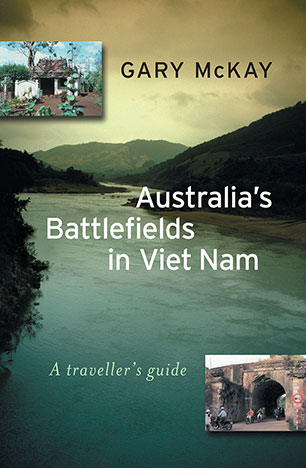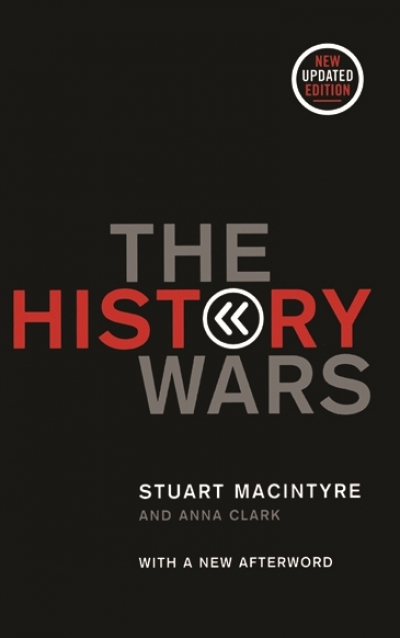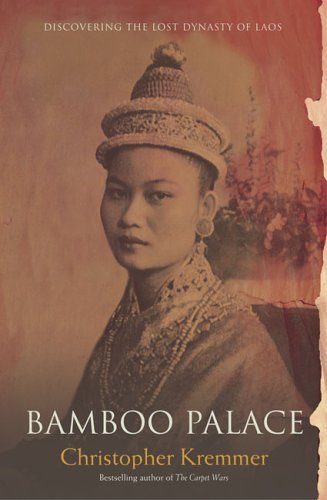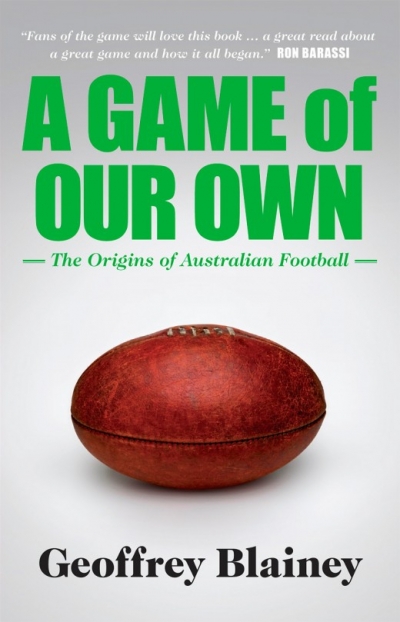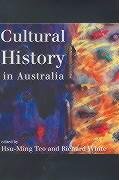History
India, China, Austraila: Trade and society 1788 - 1850 by James Broadbent, Suzanne Rickard and Margaret Steven
Studies of nineteenth-century decorative arts in Australia have largely focused on objects – furniture, silver, ceramics – produced in Australia for the home market, rather than on a systematic study of imports. The design sources for Australian-made furnishings during the nineteenth century were mostly British; this is also reflected in Britain’s being the principal source of exports to Australia. Given the vast amount of imports from Asia available today – from tableware to mobile telephones, and much of it demonstrating the latest in technology – one could be excused for thinking that our reliance on Asian trade is a twentieth- century phenomenon. Not so. As India, China, Australia: Trade and society 1788–1850 amply demonstrates, our trade with Asia began in the eighteenth century – even ensured the survival of the fledgling port of Sydney – and we have never looked back.
... (read more)A Death in Brazil: A book of omissions by Peter Robb
Australian writer Peter Robb has once again written a whole, complex, foreign society into our comprehension. This time it is Brazil, its myriad worlds of experience, its cruelly stolid immobility and exhilarating changefulness, its very incoherence, somehow made accessible to our understanding. In 1996 Robb’s Midnight in Sicily was published to international acclaim. He had set himself the task like the one the mythical, doomed Cola Pesce had been commanded to achieve: to dive into the sea of the past; ‘to explore things once half glimpsed and half imagined’; and to discover ‘what was holding up Sicily’. And he succeeded magnificently.
... (read more)Anyone who heard Inga Clendinnen’s 1999 Boyer Lectures or who has listened to her in any other way will hear her voice clearly in this book: contemplative, reflective, warm, gently paced. Dancing with Strangers seems to have been written as if it were meant to be read aloud. It reaches out to its listeners ...
... (read more)Indonesia is a difficult place to write about, because of its inherent complexity and the contested views that surround it. And then there is the sheer time that it takes to get to know the place, or at least to begin to know it, or parts of it. No one book can definitively come to terms with Indonesia’s scattered geography and dozens of cultures, its aliran (streams of influence), religious factions, social strata, degrees of development and competing interests. For these reasons, few authors or even edited collections try their hand at Indonesia as such, usually preferring to focus on an aspect of its vast and fragmentary complexity. This has been particularly so in the post-Suharto period, not least with the plethora of edited volumes that have sought to explain rapidly changing events there.
... (read more)Jack Gregory has devoted much of his long career in China studies to teaching and studying the ways in which the West and China have interrelated. He is well qualified to write on the subject. Classes that Gregory has given in Melbourne to students attending University of the Third Age classes have inspired this book. In style and structure, it is highly suitable for teaching. The writing is clear, interesting and accessible. Though the book could have done with some pictures, it does have a map and the presentation is attractive.
... (read more)Australia’s Battlefields in Viet Nam by Gary McKay & On the Offensive by Ian McNeill and Ashley Ekins
For most Australians, certainly for those under the age of forty, ‘Vietnam’ is either an item on school curricula or a slightly off-the-beaten-path tourist destination. History or holiday. This may affront some, especially the small groups on either side of the 1960s cultural and political divide that cannot let go, but it is a sign of a generational shift and of the creation of the distance between ourselves and the event that is necessary for enhanced understanding and reconciliation between Australians and the Vietnamese.
... (read more)The History Wars by Stuart Macintyre and Anna Clark & Whitewash edited by Robert Manne
Towards the end of his informative introduction, Robert Manne, the editor of Whitewash: On Keith Windschuttle’s fabrication of Aboriginal history, outlines the collective intention of the book’s nineteen contributors. He refers to Windschuttle’s The Fabrication of Aboriginal History (2002), a revisionist text dealing with early colonial history and violence in nineteenth-century Tasmania, as ‘so ignorant, so polemical and so pitiless a book’ ...
... (read more)Bamboo Palace: Discovering the lost dynasty of Laos by Christopher Kremmer
I first met a refugee from Laos, a teacher in her former life, while working part-time in a miserable egg-packing factory in the early 1980s. I had only a hazy notion of what had brought Ping to this country. Christopher Kremmer’s Bamboo Palace has now clarified those circumstances, and what a sad and painfully human story it is: of a 600-year-old socially iniquitous, politically benign kingdom destroyed and replaced by a totalitarian state.
... (read more)A Game of Our Own: The origins of Australian football by Geoffrey Blainey
Australian football has lost its magic, a unique quality existing in the 1950s, and even as late as the 1970s. It derived from the fixed positions that players adopted and from their physical diversity. In their competing forms, they became metaphysical constructs – good versus evil, beauty versus ugliness, benign innocence versus malevolent experience – constructs limited only by the human imagination ...
... (read more)Cultural History in Australia edited by Hsu-Ming Teo and Richard White
The editors of this book declare that cultural history is fashionable, so fashionable that it stands in for what might otherwise be known as ‘general history’ or even just ‘history’. ‘When historians set out to write the history of everything,’ they claim, ‘these days they are most likely to imagine themselves writing cultural history.’
Why, then, is it necessary to assemble a collection of essays on the subject? It cannot be simply to celebrate the triumph of this form of history, since many of the contributors are still urging its attractions. The purpose might be to demonstrate the range and accomplishment of cultural history in Australia, since the collection includes some distinguished local practitioners – except that their contributions to the genre are well established and readily available. Alternatively, such collections can provide the opportunity to consider the theory and method of cultural history, and quite a few of the contributors do so – but mostly with reference to their own practice.
... (read more)

